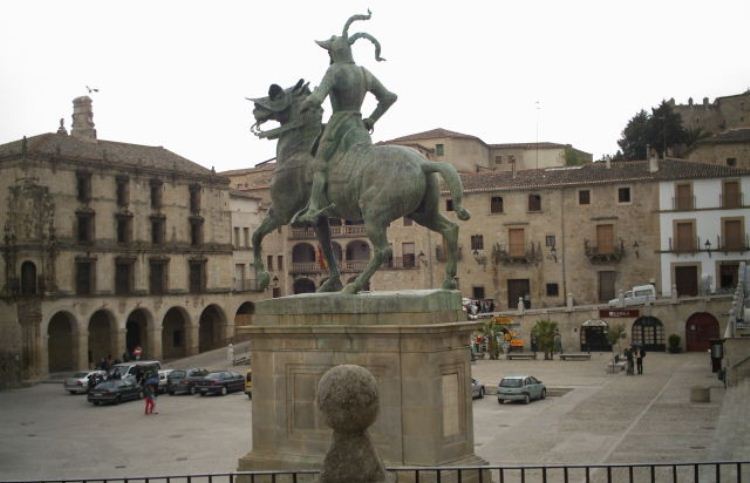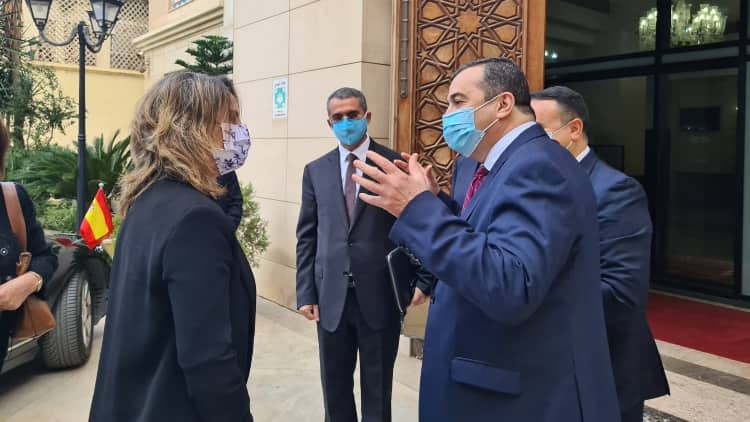Eduardo González
The town of Trujillo, Cáceres, hosts today the XXXII Bilateral Spanish-Portuguese Summit, which comes at a particularly serious moment for the Government of António Costa, which is in the tightrope after the rejection of its Budget by the Parliament due to the parliamentary pincer of the right and the extreme left.
According to government sources, the two parties have decided to maintain the Summit despite the information coming from Lisbon. Portugal experienced yesterday the first defeat of a General Budget in almost 50 years of democracy, which will force the President of the Republic, the conservative Marcelo Rebelo de Sousa, to dissolve the Parliament imminently and to call early elections, probably at the end of next January.
In any case, the Summit will go ahead with the same format as the previous ones: separate meetings of the two heads of government and of each of the ministers with their respective counterparts, with a subsequent joint meeting to share what has been discussed. The sessions will begin at noon and will conclude around four or five in the afternoon, with a joint statement and a press conference by the President of the Government, Pedro Sánchez, and the Portuguese Prime Minister, António Costa.
On the Spanish side, in addition to Sánchez, the First Vice-President and Minister of Economic Affairs and Digital Transformation, Nadia Calviño; the Second Vice-President and Minister of Labor and Social Economy, Yolanda Díaz; the Third Vice-President and Minister for Ecological Transition and the Demographic Challenge, Teresa Rbera, will participate; the Minister of Foreign Affairs, José Manuel Albares; the Minister of the Interior, Fernando Grande-Marlaska; the Minister of Transport, Mobility and Urban Agenda, Raquel Sánchez; the Minister of Industry, Trade and Tourism, Reyes Maroto; the Minister of Agriculture, Fisheries and Food, Luis Planas; and the Minister of Culture and Sport, Miquel Iceta.
Among all the agreements, the most relevant is the new Treaty of Friendship and Cooperation, which renews, without repealing it, the one currently in force, signed on November 22, 1977 by the then heads of Government, Adolfo Suárez and Mario Soares, and which the two parties have decided to maintain due to the “symbolic” value of that text agreed at the very beginning of democracy in both countries.
The new Treaty, as decided at the previous bilateral Summit, held on October 10, 2020 in Guarda (Portugal), aims to establish “a framework for the bilateral relationship between Spain and Portugal more adapted to the reality of the 21st century than the one signed more than four decades ago” in response to “the growing density and depth of bilateral relations” and in order to reflect “the full extent of their strategic and multidimensional relationship”. It also includes, for the first time in an international agreement, the holding of annual bilateral summits chaired by the heads of government, establishes a body to follow up on the commitments made at the summits and provides for annual meetings of the foreign and defense ministers.
In addition, the two governments will today sign an Action Plan for joint recovery projects in areas such as sustainable mobility, digitalization and ecological transition, which will be financed with funds from the European Recovery Plan following COVID-19. This fulfills one of the main objectives of the Guarda Summit, in which Sánchez and Costa committed to identify joint strategic projects that would be financed with the European Fund, including the development of common infrastructure, both rail and road.
On the other hand, Carmen Calviño and the Ministers of Economy and Infrastructure will sign a Memorandum of Understanding on the digital field and Miquel Iceta and José Manuel Albares (in his case, representing the Minister of the Presidency, Félix Bolaños) will sign a Memorandum of Understanding on Archives related to democratic memory. Likewise, the two Executives will sign two agreements to guarantee fishing and hunting in the International Section of the Miño River (TIRM) “respecting the ecosystem and biodiversity of the area”.
Cross-Border Worker Statute
One of the great novelties of this Summit will be the signing, by Yolanda Díaz (by herself and by delegation of the Minister of Labor and Inclusion, José Luis Escrivá), of the Cross-Border Worker Statute. The approval of this Statute is part of the Common Cross-Border Development Strategy between Spain and Portugal, announced during the Guarda Summit and which established five objectives: to guarantee equal opportunities on both sides of the border, to ensure the adequate provision of basic services, to facilitate cross-border interaction, to promote the development of economic and business activities and to favor the fixation of population in cross-border areas especially affected by depopulation.
In addition, the Minister of Transport will sign two other agreements: a Memorandum of Understanding on Cooperation in Road Infrastructures and another Memorandum of Understanding on the reform and extension of the Miño International Bridge, which links the towns of Salvaterra do Miño (in Spain, Galicia) and Monçao (Portugal). The operating regime of the bridge, built by agreement between the two countries in 1989 and in service since 1996, establishes that Portugal is responsible for its ordinary maintenance and the two countries, in equal parts, for extraordinary maintenance, repairs and extensions. With the new renovations, the bridge will have a bicycle lane and another pedestrian lane.







